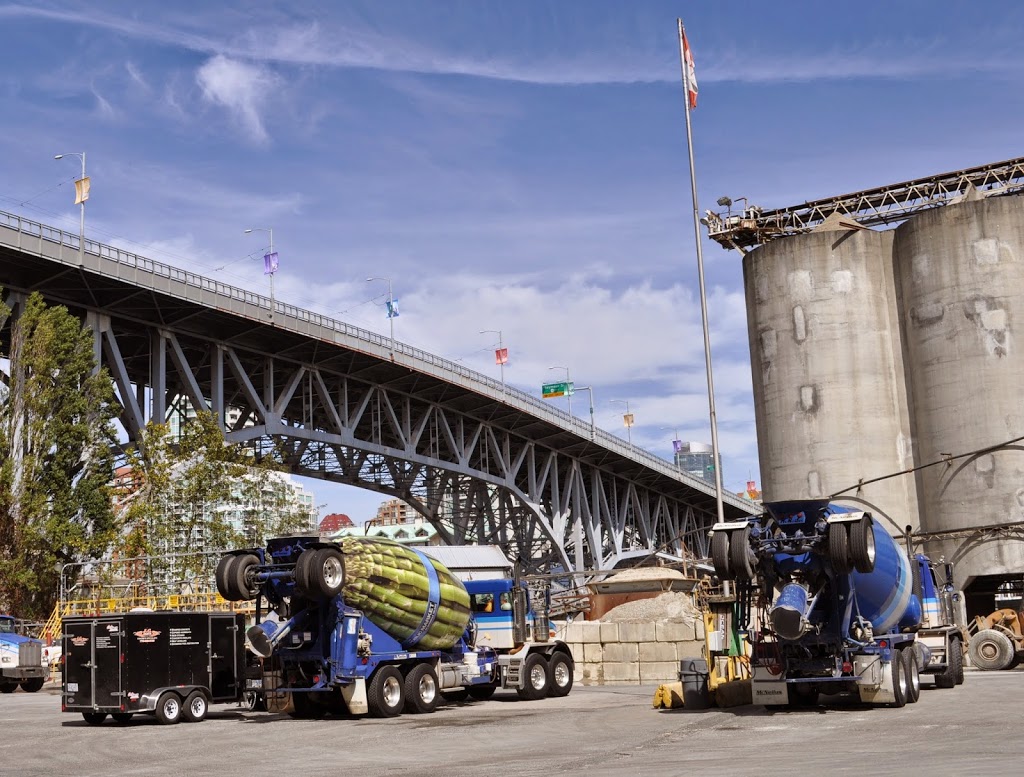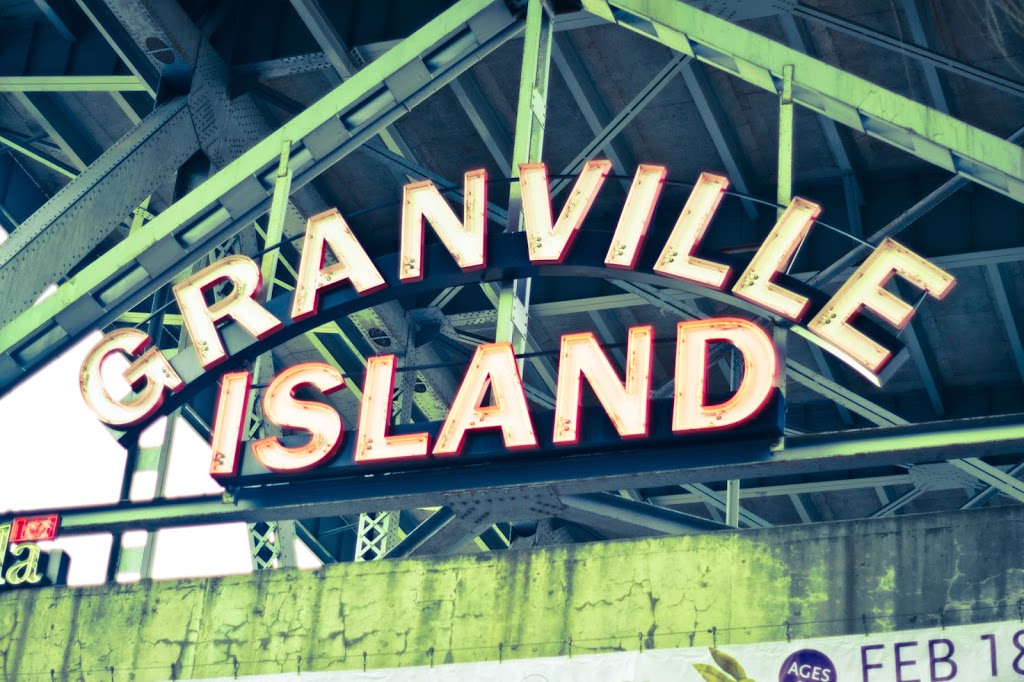Why a polarized and non-transparent debate will hurt the future of Vancouver’s treasured waterfront hub
Years ago, someone came up with the idea of putting vegetables on concrete mixers to drive them around Vancouver, and guess what, it is working. Granted, the trucks aren’t used to bring veggies to market—quite the opposite: the larger-than-life ads depicting carrots and asparagus on cement trucks bring Granville Island’s public market to people’s attention and have become a familiar and endearing sight around the city. The trucks belong to the Ocean Concrete/Lehigh Hanson plant that is located right next to the market and keeps the island’s industrial heritage alive.
 |
Ocean Concrete’s cement plant is one of the last remaining
industrial facilities on Granville Island
Photo: Joe Mabel (licensed under GNU Free Documentation License) |
The marketing folks behind the ads knew how to make people pause and think. Their campaign encapsulates what makes Granville Island so special: it’s a place, in the middle of the city, where unusual things come together—like the public market, a cement plant, an arts school campus, theatres, galleries and other creative spaces, a next-door fishing harbour, and much more. The symbiosis of all these facilities is what has made Granville Island so popular with locals and international travelers alike.
Recently, the conversation has taken a much more antagonistic turn. News leaked that Port Metro Vancouver was negotiating to take over Granville Island from the Canadian Mortgage and Housing Corporation. This was not well received by everyone, including the City of Vancouver, who according to a statement by Mayor Gregor Robertson would like to see a “transfer or lease to the City, or the creation of an independent local authority” to run the island.
There are two things that concern me about the place we’ve suddenly found ourselves in as we are talking about the future of Granville Island:
Granville Island is a core part of the waterfront in Vancouver, a maritime city that owes much of its allure and prosperity to its connection to the ocean and the world. Consequently, the Port and the shipping industry should be part of this conversation. But so should citizens and other stakeholders—which leads me to my second concern.
The secrecy surrounding the negotiations and the lack of transparency and engagement in the process so far do not bode well for the discussion moving forward. Granville Island arguably plays an important role for Vancouver: as a public space, a tourist destination, and a source of diverse economic and job opportunities in the city centre. So all those who make Granville Island what it is and who want to contribute to and benefit form it in the future need to be involved: tenants, the City, industry, civil society, and citizens.
If the polarization and lack of transparency and engagement continues, we risk squandering great opportunities for our city. Granville Island really is unique as an amalgamation of creativity, public spaces, industry, and other economic activities (such as retail, services, hospitality). And I believe that if Vancouver is to achieve the goal of becoming the world’s greenest city, moving industries elsewhere won’t cut it. Real leadership and innovation would mean making our industrial activities on the waterfront more sustainable and harmonizing them with the ecosystems and the communities that surround them—without having to move more people to jobs in the suburbs and trucking more goods back into the city.
Divisive debates are not going to get us there. The way to innovative solutions that benefit us all is through engagement, open dialogue, and collaboration, which is the approach Georgia Strait Alliance is taking with our
Waterfront Initiative. We are the backbone organization for a growing network of partners and stakeholders that works to restore, protect, and revitalize Vancouver’s shoreline. Our goal is to ensure that the waterfront can continue to be a place where we live, work, play, travel, connect with and protect nature—in other words, all that Granville Island represents so unmistakably in the heart of the city.



As a resident of Crescent Beach, another waterfront community, I find myself wary of anything run by Port Metro Vancouver. The reason is simple. We are overwhelmed by coal trains these days and PMV is telling us that its OK for Surrey Fraser Docks to add more capacity to ship US thermal coal off to Asia because it means more jobs for BC. Well, it means 25 jobs and as one local resident quipped &